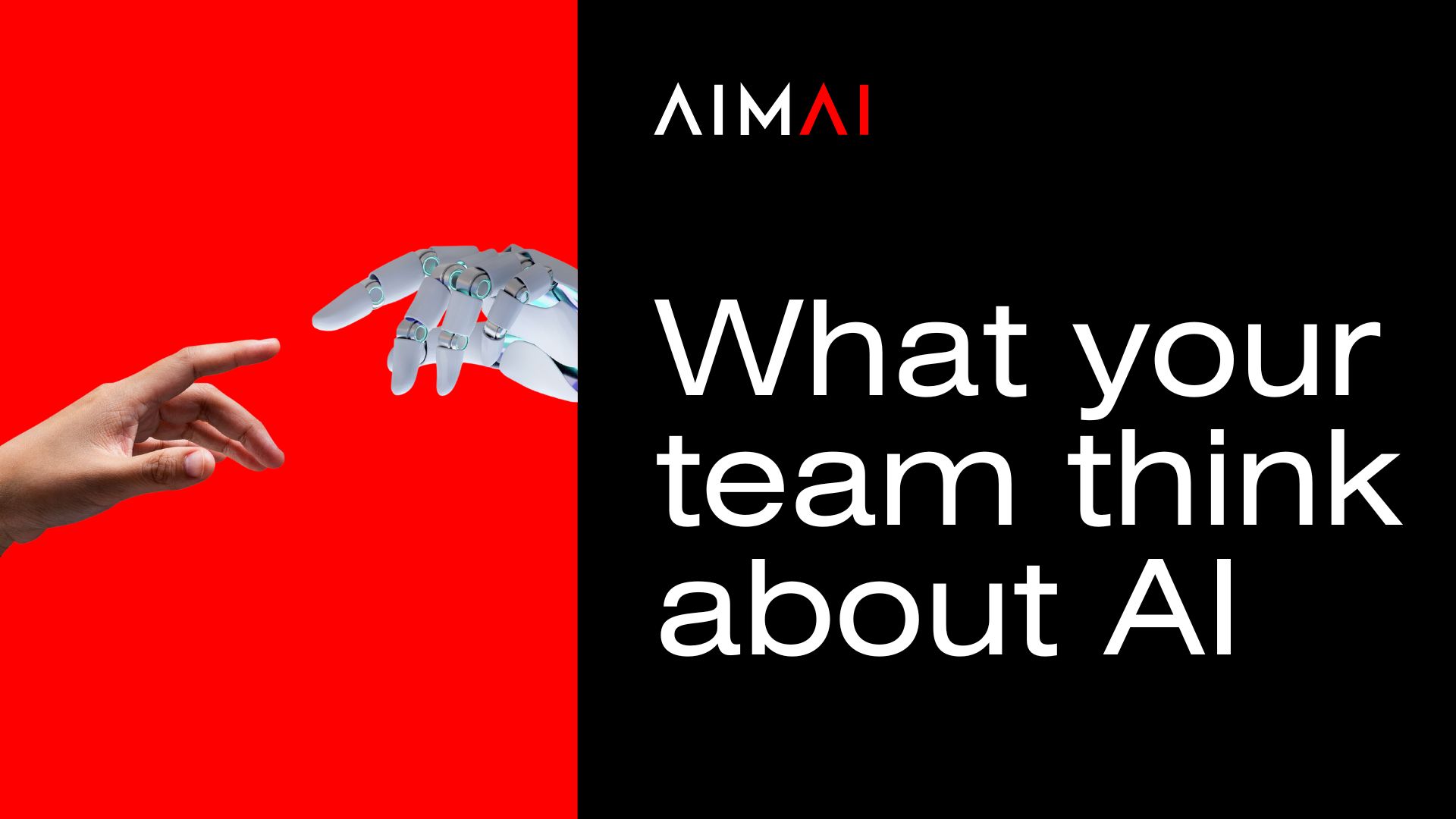Consider the following 4 categories.
Do the names of people you work with spring to mind when thinking about the different approaches people have to AI?
The anti-AI campaigner
Criticises users of AI. Likely feels threatened or insulted by the prospect of AI doing what ‘only they could do’. Proud of the fact that they ‘stay clean’.
The secret user
Outwardly neutral opinions of AI. Secretly indulges frequently and hopes the world doesn’t smell the GPT in their coffee cup.
The addict
Loud and proud pro-AI campaigner that has the blinkers on about the benefits of AI. Subject to dangerous overuse. May rely on just to get through the working day.
The ostrich
Heard of it. Haven’t bothered with it. It’s all mumbo jumbo and just a fad.
We may have generalised a little bit there. But there is value in understanding how the crowd feels about the new AI tech at our fingertips.
So, have there been any credible studies that have taken a closer look at how the world of business perceives and receives the recent AI revolution?
There has indeed.
We turn to the Accenture Workforce Survey conducted in Nov 2023 to get a more evidence based insight on what businesses have to say on the matter.
First off, we are talking Gen AI
First things first, let’s be clear about what we mean by AI. Broadly speaking we can categorise artificial intelligence into 3 groups.
For the purpose of this article, we are referring to Generative AI, or as we will now refer to it as Gen AI.
Positive Sentiment Towards Gen AI
There is largely consensus on a few positive outlooks in relation to Gen AI:
| Driving Reinvention | CxO Sentiment | Employee Sentiment |
| A significant 81% of companies view gen AI as a pivotal lever for reinvention, indicating a strong belief in its transformative potential across industries. | An overwhelming 86% of CxOs globally regard gen AI as transformative for both their companies and industries at large, with a universal expectation of workforce changes. | A notable 95% of workers recognise the value in working alongside gen AI, with 82% possessing an understanding of the technology. |
That’s the good news, but where do concerns lie?
Concerns and Resistance
Despite the optimistic outlook on gen AI’s capabilities and benefits, there’s a palpable tension surrounding its adoption, driven by concerns over risks, benefits, and the trade-offs involved.
This dichotomy of views underscores the necessity of addressing and understanding the nuances behind the resistance to foster a more inclusive and accepting environment for gen AI integration.
So what is causing resistance?
Trust Gap
A core issue exacerbating resistance is the trust gap identified between workers and leaders:
Leaders’ Perspective
32% of leaders perceive talent scarcity, stemming from skill gaps or unawareness, as a major barrier to gen AI utilisation. Additionally, 36% believe workers’ reluctance is due to a lack of understanding of the technology.
Workers’ Confidence
Contrary to leaders’ beliefs, 82% of workers feel they understand the technology well, and 94% are confident in their ability to develop the necessary skills.
Navigating the Trust Gaps
It’s unlikely that anyone has fallen off their chair in shock, whilst reading that there is a difference of opinion between workforce and leaders.
But understanding and bridging these trust gaps are critical for those companies wanting to adopt Gen AI.
It involves not just recognising the discrepancies but actively working towards resolving them to unlock the opportunities gen AI presents. This approach not only acknowledges the challenges but transforms them into steps forward in the generative age.
And ultimately, the leaders need to manage this situation.
The Opinion of Opportunities
The economists have leaned in on the topic of Gen AI. And with their views consolidated with business leaders, their outlook on where opportunities lie fall into 3 categories.
Economic Upside
Responsible, people-centric approaches to gen AI can potentially generate an additional $10.3 trillion in economic value by 2038.
Business Upside
Companies integrating gen AI deeply into their operations expect significant market share increases and revenue growth, underscoring the importance of balancing technology with human factors.
People Upside
Gen AI offers a unique opportunity for workers to expand their expertise across multiple interconnected capabilities, fostering a more agile and adaptive organisation.
In summary
If the team around you is typical, then their view is that the journey towards embracing gen AI is marked by a blend of enthusiasm and apprehension.
By addressing the underlying concerns, particularly the trust gaps between leadership and employees, companies can navigate the path towards successful adoption.
So what can you do to increase your chances of successful adoption?
Like most significant issues in business, it’s about creating a culture of transparency, trust, and continuous learning – where the focus is not just on technological integration – but on making individuals feel valued and prepared for the changes gen AI brings.


